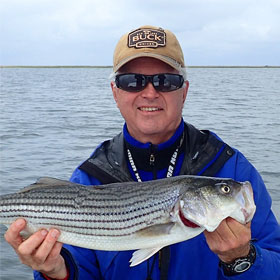A Recreational Boating Primer On Marine Emergencies
By Ken Schultz
Aug 16, 2024
Everyone who has taken a boater safety course is aware of the need to be prepared for marine emergencies. Once you’ve gotten some boating experience you tend not to think much about this topic, though realizing that something bad could happen at any time. Here’s a partial list, in no particular order, of events that might cause marine emergencies, some of which are more likely to occur than others, or in combination.
• Capsizing or sinking
• Grounding
• Onboard fire
• Mechanical failure
• Collision
• Falling overboard
• Medical problems
• Weather extremes
Equipment. You should be well prepared for a few of these if you have the proper safety equipment onboard. For example, boats of certain lengths are required to have one and possibly two marine fire extinguishers onboard and accessible to deal with an engine or galley fire. Likewise, although not mandatory, you should have a first aid kit onboard. A basic one for wounds, bleeding, and the like will suffice for day boaters. Those taking longer voyages need a more well equipped kit. Very serious medical issues, such as a heart attack, stroke, or fracture, require more than having a kit, as well as immediate action.
Prevention. Some emergencies are preventable with good seamanship, proper boat handling and navigation, and attention to conditions. You may not be able to prevent a reckless boater from colliding with you, but you can avoid a boat-to-boat collision by driving defensively and avoid striking submerged objects by cautious operation. Running aground is usually more of an inconvenience and embarrassment than a danger, but it is often avoidable through careful navigation.
Extreme weather is something that can be both anticipated and unanticipated. Paying attention to broadcast weather forecasts, warnings, and advisories, and monitoring the weather channel on your marine radio (if you have one) will help you be aware of current and pending weather conditions. But knowing how to read weather signs is also important. For most day-trip recreational boaters, this means watching for the signs of approaching thunderstorms, paying attention to changes in wind direction and velocity, being aware of encroaching fog, and watching for approaching waterspouts in order to take timely action.
WX (Weather) Channels and Cell Phones. The letters WX together are an abbreviation of the word “weather.” One or more WX channels broadcasting National Oceanic and Atmospheric Administration (NOAA) weather information are found on marine VHF radios, which also have other channels for routine and emergency communication. VHF radios are the primary means of marine communication, but are not mandatory equipment; many owners of small recreational boats do not have one.
Cellular phones have become the prime and most convenient means of communication for many boaters, but are less reliable on the water than on land due to reception issues. Distance to cell towers varies in many places and effectively nullifies their use offshore.
Getting Help. In an emergency make sure that everyone onboard is wearing a securely fitted PFD. You should have flares on your boat, which can be deployed to produce a visual distress signal. An orange distress flag should also be raised as high as possible. If it is necessary to make a distress call you can do so on a VHF radio using channel 16. If the situation is extreme, such as your boat is near-capsized and in danger of sinking, you can issue a MAYDAY call on channel 16. You can also call 911 on your cell phone, or, lacking reception, try sending a text message to a contact who can relay your situation to the appropriate authorities.
Hopefully you’ll never be in any marine emergencies, but with this info you’ll know what to do.









